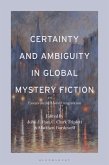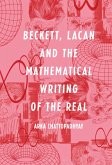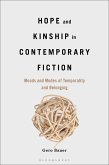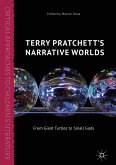Can novels contribute to the ethical lives of readers? What responsibilities might they bear in representing others? Are we ethically accountable for how we read fiction?
This study takes up modern Japanese fiction and metafiction, subjects overwhelmingly ignored by Anglophone scholarship on novel ethics, to discover pioneering answers to these and other questions. Each chapter offers new readings of major works of modern Japanese literature (1880s through 1920s) that experiment with the capacity of novel narration to involve readers in ethically freighted encounters.
Christopher Weinberger shows that Mori Ogai and Akutagawa Ryunosuke help to address key issues in new ethical theories today: debates about the roles that identification and empathy play in novel ethics; concerns about the representation of "otherness" and alterity in novels; divergence between cognitive and affective theories of ethics; widespread disagreement about what novel ethics obtain in the experience of reading, the effects of reading, or the form or content of novel representation; and, finally, concerns with bias and appropriation in the study of world literature.
Concluding with a jump to the present, Imaginary Worlds and Real Ethics in Japanese Fiction puts on display a startling continuity between the methods of Japan's modern novel progenitors and those of novelists at the forefront of global literature today, especially Haruki Murakami. Ultimately, this book models an original approach to ethical criticism while demonstrating the relevance of modern Japanese fiction for rethinking contemporary theories of the novel.
This study takes up modern Japanese fiction and metafiction, subjects overwhelmingly ignored by Anglophone scholarship on novel ethics, to discover pioneering answers to these and other questions. Each chapter offers new readings of major works of modern Japanese literature (1880s through 1920s) that experiment with the capacity of novel narration to involve readers in ethically freighted encounters.
Christopher Weinberger shows that Mori Ogai and Akutagawa Ryunosuke help to address key issues in new ethical theories today: debates about the roles that identification and empathy play in novel ethics; concerns about the representation of "otherness" and alterity in novels; divergence between cognitive and affective theories of ethics; widespread disagreement about what novel ethics obtain in the experience of reading, the effects of reading, or the form or content of novel representation; and, finally, concerns with bias and appropriation in the study of world literature.
Concluding with a jump to the present, Imaginary Worlds and Real Ethics in Japanese Fiction puts on display a startling continuity between the methods of Japan's modern novel progenitors and those of novelists at the forefront of global literature today, especially Haruki Murakami. Ultimately, this book models an original approach to ethical criticism while demonstrating the relevance of modern Japanese fiction for rethinking contemporary theories of the novel.









